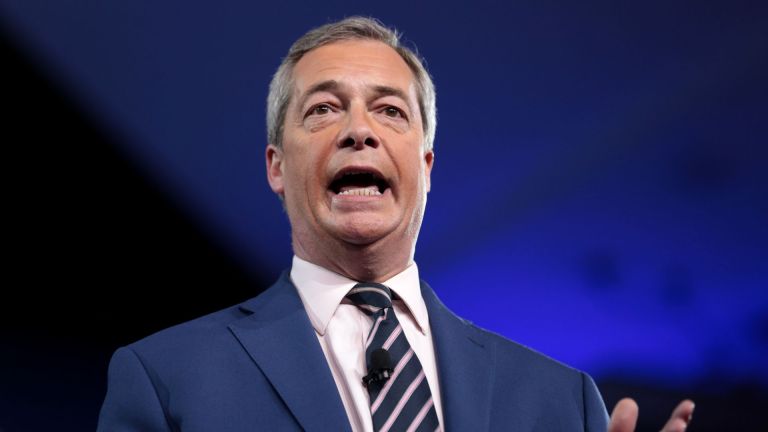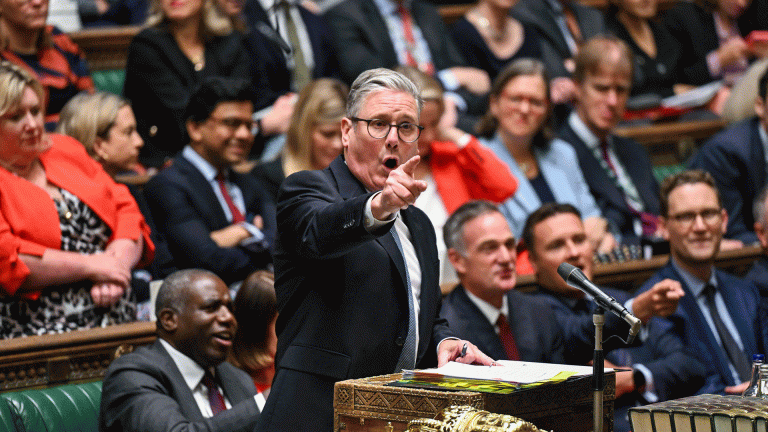So what does this mean for you and your bank balance? Here’s what experts say about how the latest inflation rates might impact you.
What do lower interest rates mean for your money?
People will be most impacted by the interest rates if they are borrowing or saving money.
If you have a loan or a mortgage, your interest payments may get cheaper – you won’t be paying off quite so much money. But if you have savings, interest rates may fall, so you could earn less.
Rachelle Earwaker, senior economist at the Joseph Rowntree Foundation, said: “Today’s cut will allow struggling families with mortgages and unsecured loans some breathing space after years of additional financial pressure from high rates. These high interest rates have taken a toll on household finances and will continue to do so as rates remain elevated.”
Around 3.8 million low-income households had taken out loans in May 2024 to pay for essentials like food or housing. For those who took out a variable-rate loan, their interest payments should now, hopefully, be lower than before.
Earwaker added: “However, while today’s news is positive, high interest rates aren’t the only cause of hardship being experienced right now, and we urgently need to see more detail about what the government intends to do to address the current crisis in living standards.”
Advertising helps fund Big Issue’s mission to end poverty
Millions of people across the UK are struggling to afford the basics they need to live – and while lower interest rates may help some people, charities are calling on the government to act to support people who are struggling financially.
Richard Lane, the chief client officer at debt charity StepChange, said: “Rate cuts alone will not ease the financial pressures facing households.”
Recent StepChange research shows that four million people are facing problem debt in the UK, and over a quarter of the population are in financial difficulty.
“The new government needs to ensure those who are struggling to afford the essentials are able to access the help that they need,” Lane said.
Wage growth slowed to 5.7% in the three months to the end of May, its slowest rate since August 2022, and the labour market is “cooling”.
Carsten Jung, senior economist at the IPPR, said the interest rates cut is good news but that the Bank of England has waited “too long” to do so, “holding back the UK’s economic recovery by underappreciating the long-term effect of high interest rates”.
Advertising helps fund Big Issue’s mission to end poverty
And as the UK economy has suffered, much of the population’s finances have suffered too.
For anyone worried about their finances, there are charities which offer free and impartial advice like StepChange, Citizens Advice, or National Debtline. Your local council can also offer advice and support, or refer you for support.
What does the interest rate cut mean for mortgages?
Rising interest rates have had an immediate impact on tracker and variable mortgages and also left people with fixed mortgages facing bigger bills when they renewed – the Bank of England’s cut should reduce them.
Mortgage rates have been rising in recent years as the Bank of England has raised interest rates in a bid to peg back surging inflation. The impact of Liz Truss and Kwasi Kwarteng’s disastrous mini-Budget also sent mortgage rates spiralling.
Research from the Resolution Foundation, published last year, projected annual repayments for people remortgaging in 2024 would rise by £2,900 on average – up from £2,000.
Since the first interest rate rise in December 2021, the average house buyer has been paying £581 more on their mortgage, according to Rightmove.
Advertising helps fund Big Issue’s mission to end poverty
In that time, the average cost of a monthly mortgage has risen by 46% while average asking price for a home has risen by 10%.
While this interest rate cut is unlikely to trigger a frenzy in the housing market, further falls ahead are likely to have an impact.
Matt Smith, Rightmove’s mortgage expert, said: “The highly anticipated rate cut has finally arrived, and while those looking to take out a mortgage soon shouldn’t expect to see drastically lower mortgage rates, we would expect the downward trend we’ve started to see continue.
“This sets us up for hopefully further cuts to come, and when we have seen further reductions to the base rate, people should really start to see the impact. However, it’s important to keep in mind that mortgage rates are widely expected to eventually settle at higher levels than previously, with the market view that the base rate may eventually fall to about 3.25%.”
John Fraser-Tucker, head of mortgages at online mortgage adviser Mojo Mortgages, said the drop in the base rate is likely to see savings of £93 on a typical tracker mortgage.
“If you have a tracker mortgage, the recent rate cut will immediately reduce your monthly payments,” said Fraser-Tucker. “Our internal research shows that the average two-year tracker mortgage rate has been 5.79% over the past month.
Advertising helps fund Big Issue’s mission to end poverty
“If you have a variable-rate mortgage, your lender may lower their mortgage rates in response to the base rate reduction if they haven’t already in anticipation of the change.
“Since the recent stabilisation of the housing market following the General Election, many lenders, including HSBC, Barclays, and NatWest, have already begun to adjust their rates. This trend suggests that further reductions may be forthcoming, providing much-needed relief for borrowers.”
Those on fixed rate mortgages are likely to see the benefits of the cut at the end of their current deal.
Fraser-Tucker added: “If you’re nearing the end of your fixed-rate mortgage, today’s base reduction is likely to benefit you, as it could result in cheaper fixed-rate deals becoming available.”
But the trouble is, people have faced such hardship over the last couple of years that it is unlikely to bring a huge amount of relief. Around seven in 10 low-income mortgage holders – 1.2 million households – went without essentials like food or a warm home in the six months to May 2024.
Earwaker said: “Millions of mortgage holders across the UK face paying hundreds of pounds more in repayments each month than they did two years ago as fixed rate periods came to an end, and this is only exacerbated if you’re on a low income.”
Advertising helps fund Big Issue’s mission to end poverty
Do you have a story to tell or opinions to share about this? Get in touch and tell us more. Big Issue exists to give homeless and marginalised people the opportunity to earn an income. To support our work buy a copy of the magazine or get the app from the App Store or Google Play.










